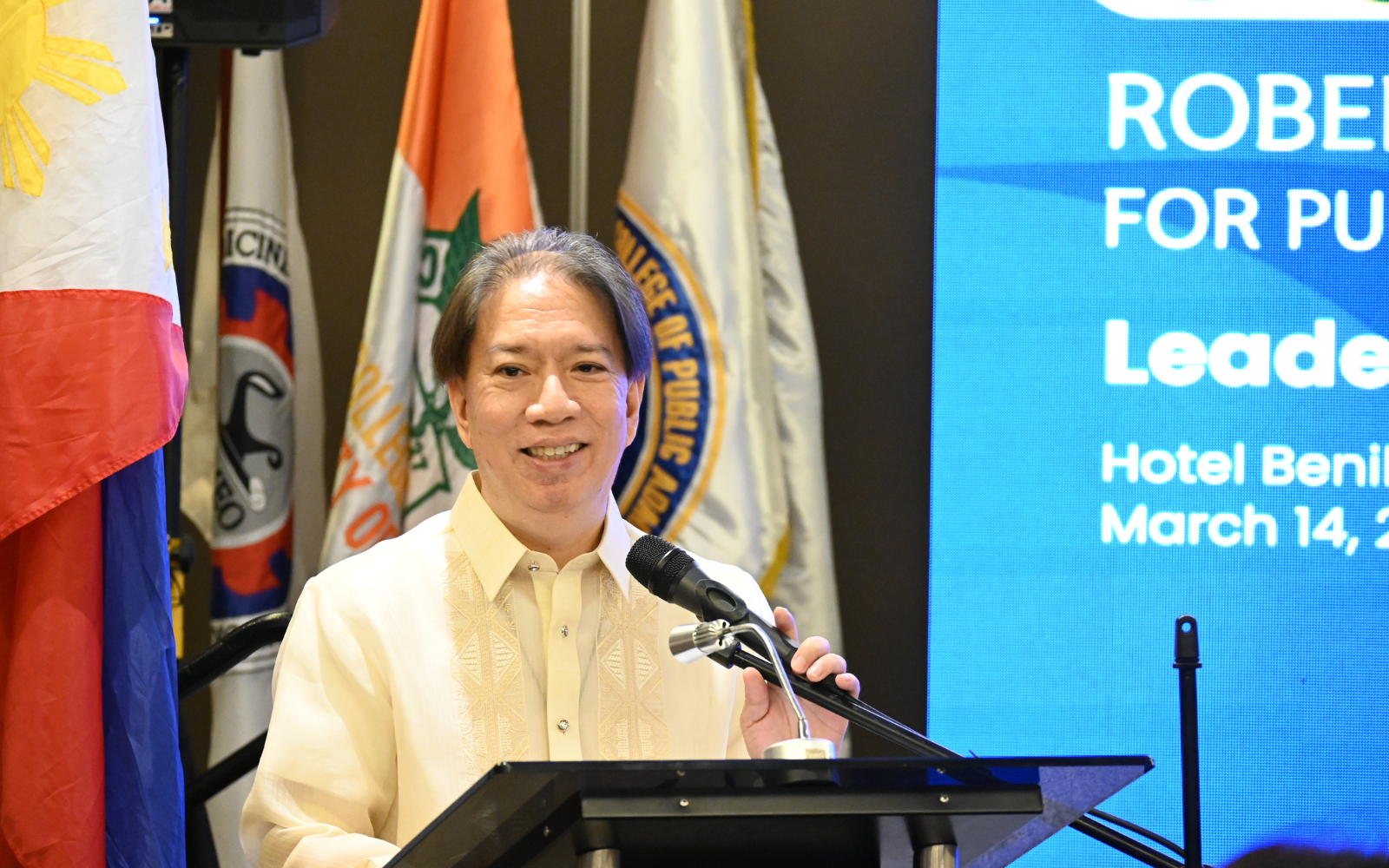UP College of Public Health and Zuellig Family Foundation: A Decade of Strengthening Local Health Leadership
Stories | by Krizzia Esperanza

The University of the Philippines Manila – College of Public Health (UP-CPH) is a premier academic institution dedicated to training professionals and leaders in public health. For over a decade, it has partnered with the Zuellig Family Foundation (ZFF) to strengthen the capacities of local government leaders in delivering better health services to their communities.
Dr. Ernesto “Jun” Gregorio Jr., Associate Professor and focal person for UP-CPH’s Health Leadership and Governance Program (HLGP), has been part of this collaboration since its early stages. “We were tapped by ZFF in 2013 to become their academic partner for Region 4A (Calabarzon),” he said. “The Department of Health (DOH) was scaling up the HLGP nationwide, and ZFF needed academic institutions to help with implementation. We were endorsed by then DOH Region 4A Director Dr. Ed (Edgardo) Gonzaga, who was also our alumnus.”
Since then, UP-CPH has trained multiple batches of local leaders from municipalities across Cavite, Batangas, Rizal, and Laguna. The goal: to equip mayors, municipal health officers, and other local leaders with the knowledge and tools to improve local health outcomes.
One standout example of success was San Luis, Batangas. “They had creative initiatives like an ‘alkansya’ (“piggy bank”) system for pregnant women, so they could save money during prenatal visits and have funds when they give birth,” Dr. Jun shared. “Even the mayor personally drove the ambulance when no one else could. That level of involvement really made an impact.”
Another remarkable transformation happened in Noveleta, Cavite, a third-class municipality. “From a mostly red scorecard, they improved dramatically in just under two years,” he explained. “They didn’t just improve health indicators—they addressed social determinants of health. They trained out-of-school youth for call center jobs and even accompanied them to Manila for interviews. They boosted income and community pride.”
Noveleta also cleaned up its polluted coastline, previously a garbage site, and revived it into a thriving fishery and tourist area. “They reduced coliform levels, saw fish and even turtles return, and built a fish port,” said Dr. Gregorio. “They showed that improving the environment can uplift public health and the local economy.”

This partnership has not only improved communities—it has also enriched teaching and curriculum at UP-CPH. “The lessons we learned in the field have become part of our coursework. I now use real stories from Noveleta and San Luis in my classes on health promotion and social determinants of health,” Dr. Jun said.
Another product of this partnership is the Roberto R. Romulo Fellowship, which supports emerging leaders from local government units to gain deeper expertise in public health leadership and governance. This fellowship strengthens capacity building by providing additional opportunities for advanced learning and mentorship. The first batch of fellows graduated last March 2025.
The collaboration has even led to new academic programs. “We’re developing a ladderized curriculum—starting with a certificate course in public service, then moving to diploma and eventually a master’s degree,” he said. “This gives local leaders a clear academic path while applying what they learn in real-world settings.”
Beyond programs and training, Dr. Gregorio stressed the value of ZFF’s support: “ZFF provided a platform where theory meets practice. We learn from the mayors just as they learn from us. That two-way exchange has been powerful.”
Looking ahead, he sees room to grow the partnership. “We want to help revise the Barangay Health Leadership and Management Program (BHLMP) and align it with the new DOH initiative, Purok Kalusugan. The indicators need updating to include social and educational determinants.”
Ultimately, Dr. Jun believes that public health must be community-centered and multi-sectoral. “Our health system remains hospital-centric. Strengthening local public health leadership is essential. If we can institutionalize these programs and scale them up, we’ll move closer to achieving real health equity.”